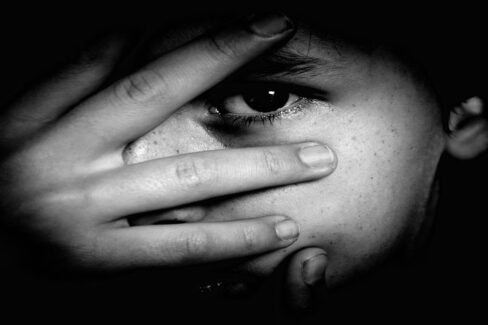The Message of Addiction*
What is Addiction? It could be defined as an urge to do something that is hard to control or stop. Where there are chemical changes in the body caused by the addiction eg. with alcohol or drugs, then there are withdrawal symptoms which also occur when you refrain from the addiction.
There are different addictions – addictions to alcohol, to drugs, to gambling, to sex, to prescription medications and even to food. However, there is an underlying thread common in all addictions- the addict does not love themselves. They feel unacceptable to others or a failure and after giving into their addictions, they are suffused with guilt. So how do these addictions start? Usually it occurs in childhood. Parents may praise a child for eating, so overeating becomes a way of keeping the good feeling going. Every time the child feels a failure, they eat- hence the adult binge eater. Or not eating might be a way of gaining a degree of power over a parent – leading to bulimia and anorexia in later life. Addictions linked to food are harder to eradicate as one cannot abstain from eating. You have to relearn and establish a healthier attitude to food. This does not mean achieving an ideal weight or looking good in one’s clothes- it means accepting yourself and eating to stay healthy.
A lot of sex addictions arise from childhood sexual abuse where sex becomes confused with love.
Alcoholism can also result from sexual abuse and is a way to kill the painful memories, albeit for a short time.
Recently, there has been a spike in the addiction to prescription drugs like Tramadol. Celebrities like Ant McPartlin have been addicted to prescription drugs. Most of these opioids actually release Dopamine into the brain which makes you feel good and so even when the pain is no longer there, you still crave the feel good factor. In the US the addiction to prescription medication is huge and over 2 million patients have misused these drugs at some point.
Addictions like shopping or gambling focus on the short lived high of having something new or winning a bet. Short lived is the key word as the gambler or shopper soon needs to repeat the experience. I have had clients whose shopping addiction was so bad they had drawers full of children’s clothes with the tags still attached and their designer handbags were stored in the garden shed.
Addictions run on a vicious cycle of craving, indulgence and then overwhelming guilt leading to more indulgence in order to feel better or kill the pain.
Sadly, addictions not only affect the addict, but destroys families and close relationships. Children especially suffer as addictions subject them to divorce, violence, physical and mental abuse, financial hardship and the need to keep the family addiction a secret.
Is there an addictive personality? There are certain common traits in addicts like impulsiveness, low self esteem, lack of personal goals etc, but it does not necessarily mean that people exhibiting these characteristics will end up with an addiction. So in my opinion I don’t believe that there is an addictive personality. It is a learned behaviour.
Are addictions genetic? There are studies to show that there is a link between genes and addictions like alcoholism , but growing up in an environment where addiction is rife is likely to lead some children to develop addiction as a coping mechanism. So the child of an alcoholic may have a predisposition to alcoholism themselves. More research is needed in this area and with my former clients I generally found that there is usually a history of alcoholism in the family.
If your addiction is not severe, it is likely that your physician will refer you to a psychotherapist and to self help groups. However, if the addiction is advanced then you need an in-patient stay in a rehabilitation environment to cope with the withdrawal symptoms. However, working with a therapist will help with self acceptance which is the key driver in recovery. Therapy will also identify the triggers and emotions that lead to the addictive behaviour and create interventions to deal with these in a more effective manner. Without this, the addict will often replace one addiction with another. For example, they may stop smoking, but start binge eating. The key is not being acceptable to others, but in learning to accept themselves. With addictions, group therapy is preferred as it allows peers to challenge and support the addict and it also creates an environment of non judgemental acceptance. However, each individual is different and as time passes needs change and so should treatment plans.
In the end, the only person who can help an addict to recover is themselves, by seeking help and rewiring the message that tells them they are unacceptable in order to hear instead a new voice that says they are fine just as they are.
*This article was written by ‘The Common Sense Therapist’, a retired psychologist who lives overseas and wishes to remain anonymous. She has many decades of experience in dealing with various people and aspects of psychology, and is a great source of enlightenment on many things in life.









